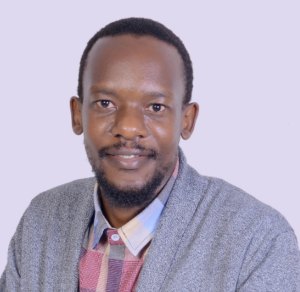Genome Sequencing Bioinformatics - Africa
15 August–10 October 2023
Distributed Classrooms across Africa
Call for Participant Applications Open
Summary
Course Summary:
In collaboration with H3ABioNet, we are pleased to announce the Genome Sequencing Bioinformatics Africa course. This is a new iteration of the previous course – “Next Generation Sequencing Bioinformatics – Africa 2022”
High throughput sequencing is an essential tool in genetic and genomic analysis. It is increasingly important for experimental scientists to gain the bioinformatics skills required to analyse the large volumes of data produced by sequencers. This course will equip participants with the essential informatics skills required to begin analysing sequencing data and apply some of the most commonly used tools and resources for sequence data analysis.
The programme will cover prominent sequencing technologies, algorithmic theory and principles of bioinformatics, with a strong focus on practical computational sessions using sequence analysis techniques and tools applicable to any species or genome size. A variety of applications will be covered from post-sequencing analysis, quality control, alignment, assembly, and variant calling.
This course will apply a blended learning format consisting of locally coordinated classrooms referred to as “distributed classrooms”. See the publications by Gurwitz et al. and Ras et al for more information. The local classrooms for this course may run virtually using Zoom.
Time commitment:
Contact sessions will run on Tuesdays and Thursdays lasting for 4 hours per session.
Target audience:
The course is aimed at postdoctoral scientists, senior PhD students, junior faculty members or clinicians/healthcare professionals based in Africa who are actively engaged in or soon to commence research involving sequencing data analysis.
Please note:
The practical sessions will be taught exclusively through Unix/Linux. Therefore, participants are required to have some previous experience using the Linux operating system. This will be essential for participants to fully benefit from the course. There are numerous online introductory tutorials to the UNIX/Linux operating system and command line, including:
http://www.ee.surrey.ac.uk/Teaching/Unix
http://swcarpentry.github.io/shell-novice/
Download our call for participants poster
Share this poster with those who would be interested to participateProgramme
The course will run for 10 weeks on Tuesdays and Thursdays (4 hours per session) from 15 Aug–10 October 2023
The programme will cover the following core topics:
- Intro to Unix/Linux & running workflows
- Introduction to Sequencing Technologies
- Sequencing data pre-processing and QC
- Alignment to reference sequences
- Variant calling and annotation
Learning outcomes
On completion of the course, participants should expect to be able to:
- Use the unix command-line as a tool for data analysis
- Describe the different sequencing data file formats available
- Perform QC assessment of high throughput sequencing data
- Explain the algorithmic concepts behind read alignment, variant calling and structural variant detection
- Perform read alignment, variant calling and structural variation detection using standard tools
Course instructors
Course Instructors

Fatma Guerfali
Institut Pasteur de Tunis, Tunisia

Shaun Aron
Sydney Brenner Institute for Molecular Bioscience, South Africa

Sonia Barasa
Pan-African Mosquito Control Association (PAMCA), Kenya

Jane Mwangi
Pan-African Mosquito Control Association (PAMCA), Kenya

Luicer Olubayo
Sydney Brenner Institute for Molecular Bioscience, South Africa

David Twesigomwe
Sydney Brenner Institute for Molecular Bioscience, South Africa

Edward Lukyamuzi
MalariaGEN, Uganda

Amadou Diallo
Institut Pasteur Dakar, Senegal
How to apply
Participant applications
To apply to participate on the course, please use the Apply button above. Participants are expected to attend contact sessions twice a week, complete practical exercises and assignments, and put knowledge to the test in assessments.
Applications must be received by 29 June 2023. No late applications will be accepted.
Candidate prerequisites:
The course is aimed at postdoctoral scientists, senior PhD students, junior faculty members or clinicians/healthcare professionals based in Africa who are actively engaged in or soon to commence research involving next generation sequencing data analysis.
Priority will be given to applicants who:
1) currently or will soon have NGS experimental data to analyse
2) will utilise the bioinformatics techniques taught in at least two of the modules/topic areas listed in the programme outline in their experiments
3) have a clear plan/opportunity to disseminate the knowledge amongst their peers. We encourage applicants to highlight these areas in their application.
Please note – the course will make use of a virtual machine. If using a personal machine for this course – you will require access to a computer with at least an i5 or equivalent processor, 8GB RAM, and 100GB of disk space ( M1 Macs are not compatible)
The practical sessions will be taught exclusively through Unix/Linux. Therefore, participants are required to have some previous experience using the Linux operating system. This will be essential for participants to fully benefit from the course. There are numerous online introductory tutorials to the UNIX/Linux operating system and command line, including:
Cost
The course is subsidised by Wellcome Connecting Science Courses and Conferences.
Testimonials
Feedback from 2022 course
“I enjoyed the interactions on zoom and vula, the facilitators and the teaching assistants were great. I am grateful for the exposure. Everyone was pleasant and explained concepts as easily as they could.”
“Honestly, I liked everything about the course from the beginning to the end. It was very rich in information and the quality of the teaching was good, I really enjoyed doing the assignments.”

